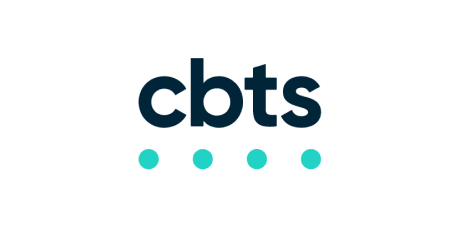Introduction
Every day, companies collect tons of data, but only a few know how to turn it into real business value. That’s where Data Science Consulting Services step in. With the power of advanced analytics, AI-driven models, and statistical techniques, expert consultants help you uncover patterns, predict trends, and make smarter decisions.
Whether you want to understand customer behavior, boost efficiency, or reduce risk, data science can guide your next move. In this blog, we’ll break down how data science consulting works, why it matters, and how it can transform the way your business runs.
What Are Data Science Consulting Services?
Data science consulting services help businesses make better decisions using data. These services include analyzing large amounts of information to find useful patterns, trends, and insights.
A data science consultant is an expert who understands both data and business goals. They use tools like statistics, machine learning, and AI to turn raw data into clear, helpful insights. Consultants also suggest actions that can help improve sales, reduce costs, or make operations smoother.
Many industries use data science consulting, such as:
- Healthcare – to predict diseases and improve patient care.
- Retail – to understand customer behavior and boost sales.
- Finance – to detect fraud and manage risks.
- Manufacturing – to improve supply chains and reduce waste.
With the right consulting support, companies can use their data to grow smarter and faster.
Role of AI in Data Science Consulting
Artificial Intelligence (AI) plays a major role in modern data science consulting services. With AI, consultants can analyze large sets of data faster and more accurately, helping businesses find patterns, predict future outcomes, and make better decisions.
“AI + Machine Learning = Smarter Solutions”
AI, especially machine learning (ML), allows systems to learn from data without being directly programmed. In data science consulting, this means creating models that can improve over time, spot hidden trends, and adapt to new information. Consultants use these models to help companies automate tasks, reduce errors, and improve performance.
Popular AI Use Cases in Data Science Consulting
Here are some common ways AI is used in data science consulting:
- Recommendation Engines
AI helps e-commerce and streaming platforms suggest products or content based on user behavior. This boosts user engagement and sales. - Customer Churn Prediction
Businesses can use AI to identify which customers are likely to stop using their service. This helps companies take action early and retain more customers. - Fraud Detection
In banking and finance, AI can quickly detect unusual activity that may signal fraud, helping protect both the business and its customers. - Sentiment Analysis
AI can analyze customer reviews, social media posts, or survey responses to understand how people feel about a brand or product. - Demand Forecasting
Retailers and manufacturers use AI to predict product demand and plan inventory more efficiently.
Enhancing Predictive Modeling and Trend Forecasting
Predictive modeling is all about using current and historical data to forecast what might happen next. AI takes this to the next level. Unlike traditional methods, AI can process massive data sets from different sources in real time, leading to more accurate and dynamic predictions.
Why AI Matters in Data Science Consulting
AI doesn’t just make processes faster, it makes them smarter. It helps consultants deliver deeper insights, better forecasts, and more value to clients. When used correctly, AI becomes a powerful tool for businesses to stay ahead of the competition.
Benefits of Partnering with a Data Science Consulting Firm
Working with a data science consulting firm can give your business a powerful advantage. Instead of figuring everything out on your own, you get expert support to make smart, data-driven decisions. Here are some key benefits:
1. Faster Time-to-Insight
Consulting firms already have the tools, processes, and experience needed to analyze data efficiently. This means you can get answers faster, whether it’s understanding customer behavior, predicting sales, or solving business problems. Speed matters, especially in fast-moving industries.
2. Access to Specialized Expertise and Tools
Data science involves complex techniques like machine learning, statistical modeling, and AI. A consulting firm brings a team of experts who specialize in these areas. They also use advanced tools and technologies that may be too expensive or complicated to manage in-house.
3. Cost-Effective Compared to Building In-House Teams
Hiring a full-time team of data scientists, engineers, and analysts can be costly and time-consuming. Partnering with a consulting firm gives you access to the same skills and services, without the long-term commitment or overhead costs. It’s a smart way to scale your analytics without overspending.
4. Strategic Decision-Making Backed by Data
The best business decisions are based on facts, not guesswork. A data science consulting firm helps you turn raw data into actionable insights. Whether you’re launching a new product, entering a new market, or improving operations, their insights help you make confident, data-backed decisions.
How to Choose the Right Data Science Consulting Partner
Selecting the right data science consulting firm is a critical step. Use these points to make a confident choice.
- Industry Experience: Choose a firm that understands your industry. Domain knowledge ensures faster execution and more relevant insights.
- Technical Expertise: Check if the team has skills in key areas like machine learning, AI, big data tools, cloud platforms, and visualization software.
- Proven Track Record: Look for client success stories, case studies, and measurable outcomes. Results speak louder than promises.
- Customizable Solutions: Avoid one-size-fits-all providers. The best consultants tailor their approach to fit your business goals, data size, and tech environment.
- Ethical Use of AI and Data: Ensure the firm follows responsible AI practices, data privacy regulations, and maintains transparency in how models are built and used.
- Scalability and Support: Your data needs will grow, make sure your consulting partner can scale with you and offer long-term support.
- Communication and Collaboration: Strong communication and a collaborative approach are must-haves. You should feel like they’re an extension of your team, not outsiders.
By choosing a partner that meets all these criteria, you’ll be well-positioned to turn your data into a valuable business asset.
Conclusion
Data is more than just numbers. It’s a powerful asset that holds the answers to your most pressing business questions. When used correctly, it can reveal customer preferences, forecast future trends, improve operations, and guide smarter decision-making across every level of your organization.
Partnering with a data science consulting firm gives you access to advanced tools, expert knowledge, and AI-driven insights that are often difficult to build in-house. These consultants not only help you understand your data but also turn it into a competitive advantage by aligning analytics with your business strategy.
Whether you’re looking to optimize performance, reduce risks, or explore new market opportunities, WeThinkApp provides the clarity and confidence needed to move forward. The potential is already within your data. With the right guidance, you can unlock it, act on it, and fuel sustainable growth. If you’re ready to transform information into impact, now is the perfect time to embrace data science consulting.
FAQ
How can data science consulting help my business grow?
Data science consulting turns raw data into clear insights that support better decisions. Whether it’s predicting customer behavior, improving operational efficiency, or reducing business risks, consultants use AI and advanced analytics to uncover opportunities that drive growth. The result is smarter strategies, improved performance, and measurable impact.
Do I need a large amount of data to benefit from data science consulting?
Not necessarily. While large datasets can provide richer insights, experienced consultants can work with businesses of all sizes and data volumes. They focus on quality over quantity, helping you extract value even from limited or siloed data using customized models and industry best practices.
What industries benefit most from data science consulting?
Data science consulting is valuable across many sectors. Healthcare uses it for disease prediction and patient care. Retailers rely on it to personalize customer experiences and optimize inventory. Finance firms use it for fraud detection and risk management. Manufacturing, logistics, and marketing also gain from predictive insights and process improvements.







